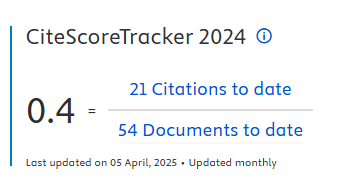About the Journal
The IJI is three issues are published every year (January-April; May-August; September-December), and articles can be submitted in Portuguese, English and Spanish, with the main publication of the work being in the English language.
The International Journal of Innovation (IJI) is a scientific journal. Its mission is to serve as a periodical publication of scientific and technological works in the field of innovation, with a focus on emerging markets, studying individuals, organizations, ecosystems and policies.







